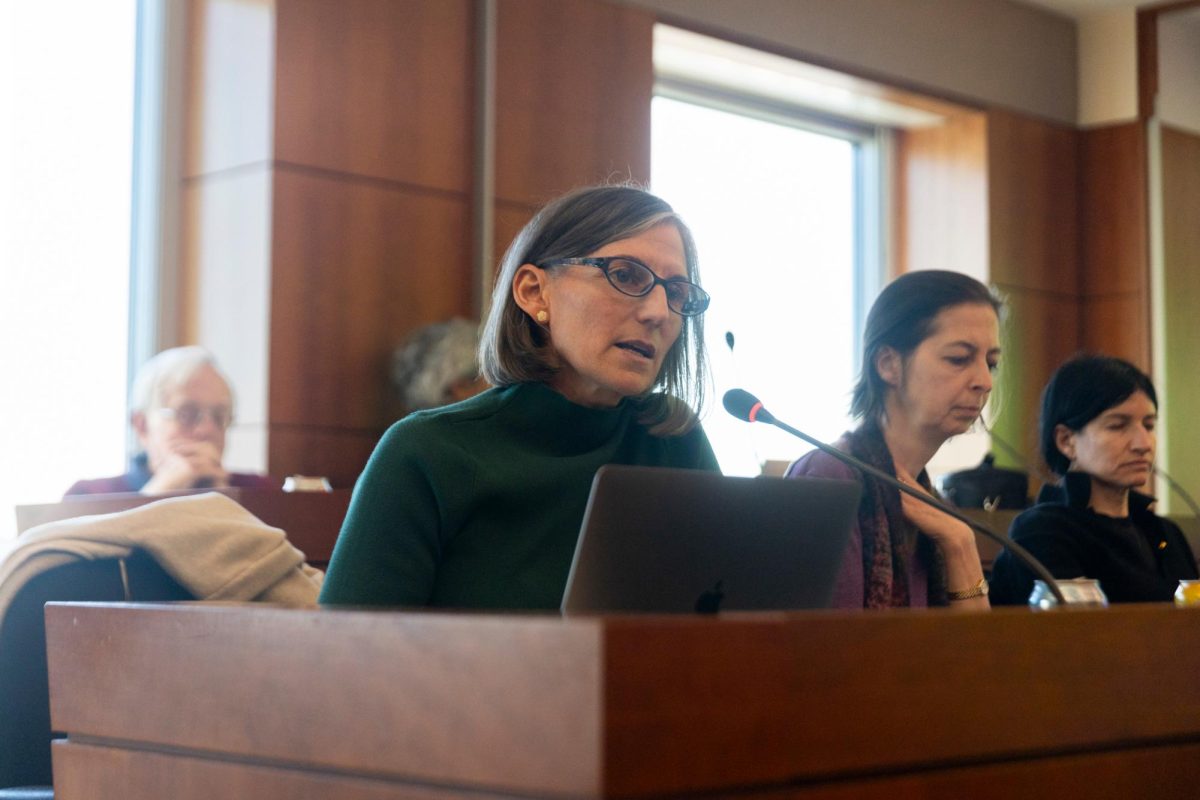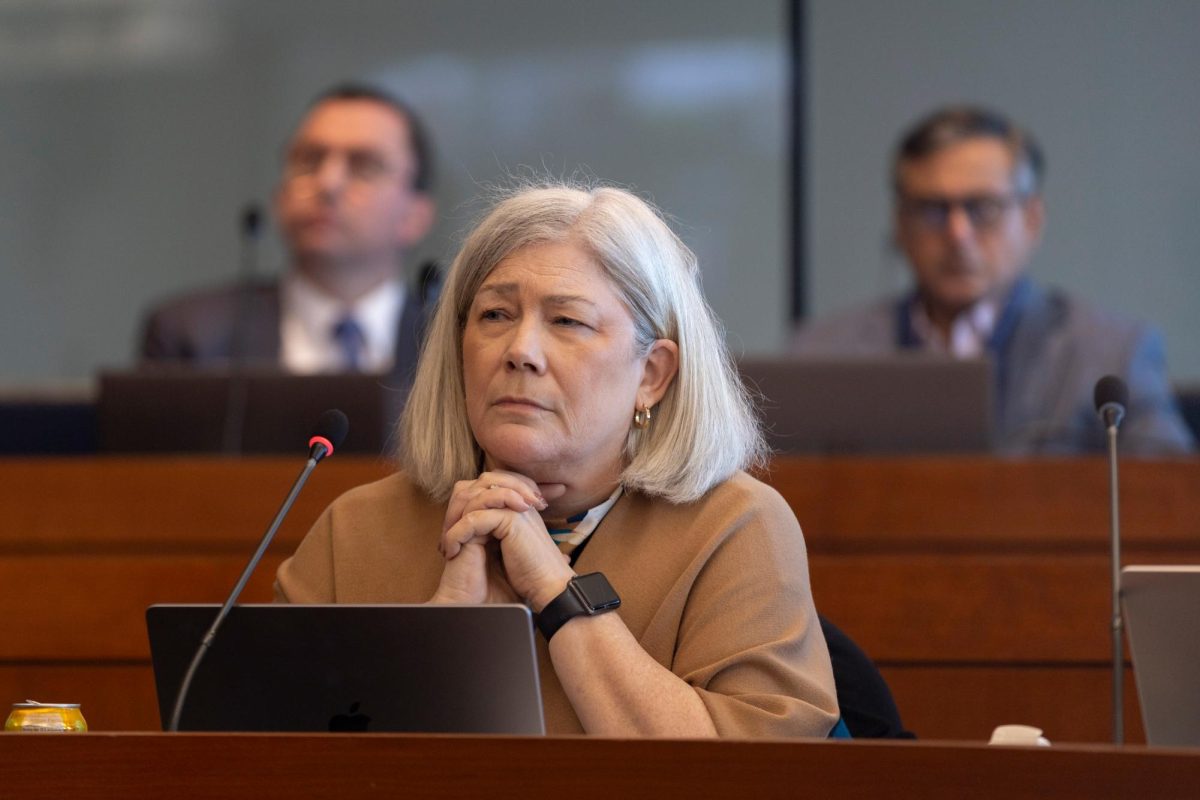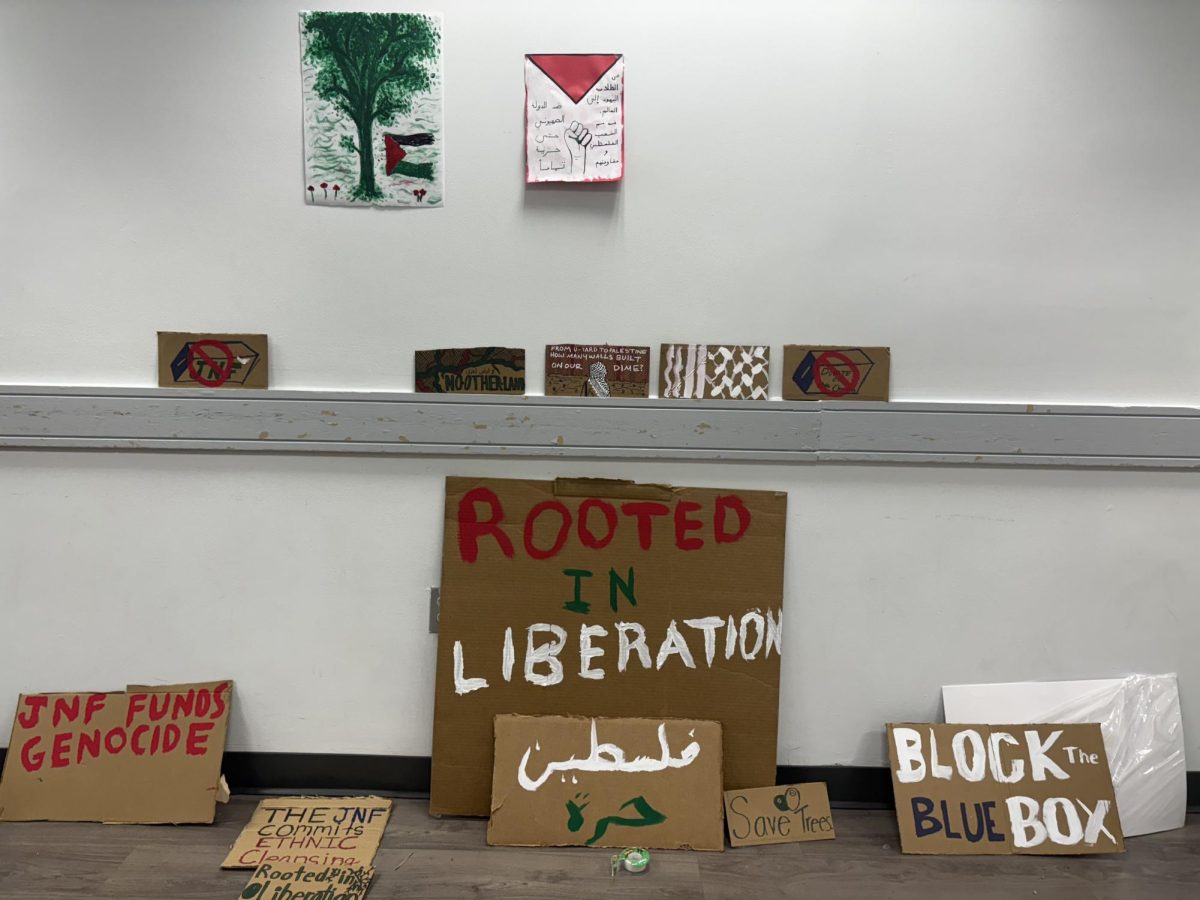As GW searches for its new president, Gallaudet University police arrested more than 100 students and alumni Friday night after three days of the students blockading campus gates in protest of the school’s incoming president.
The country’s only deaf liberal arts college had been shut down since Wednesday when students closed access to the Northeast D.C. campus though human-chains and the use of motor vehicles and construction equipment. Objection to Jane Fernandes began last May when she was named president-designate, but opposition intensified when students took over an academic building Oct. 6.
Many students objected to Fernandes, the school’s former provost, because she has been able to speak since childbirth and did not learn American Sign Language until the age of 23. ASL is the primary language used at Gallaudet and is a staple of deaf culture. Students also said the composition of the search committee lacked sufficent diversity.
Fernandes, who is set to take office in January 2007, has repeatedly refused to resign.
Student Association President Lamar Thorpe visited Gallaudet Friday before the arrests to survey the situation and identify ways GW could help. He said that although he does not want to take sides in the conflict about Fernandes, he supports the students’ right to protest. He said he is lobbying SA senators to allocate money to send blankets and food to the protesters, many of whom are living outside in tents in the increasingly colder weather. Thorpe said an SA-sponsored barbecue is also a possibility.
He said that a main concern of the Gallaudet students – that their presidential search process was not fair – is something that is being done right at GW.
“Everything that they were saying just kept going back to my thinking of how we’re doing things the right way,” Thorpe said.
Gallaudet Department of Public Safety arrested 134 student and alumni Friday night, said Mark Goldstone, a Bethesda, Md., lawyer representing the protesters. He said the decision to arrest the group at a side entrance to the campus came hours after Fernandes met with student leaders and him. Neither side would budge on the others’ demands: Fernandes refused to resign and the students refused to open access to the campus.
“They are shocked that the administration would arrest them, and now they’re trying to bring them on disciplinary charges (like expulsion),” Goldstone said Sunday. “There’s a real atmosphere of fear, and (the) coming together that Jane Fernandes called for has certainly not occurred.”
I. King Jordan, the current president of Gallaudet, said the arrests were a last resort.
“Last night was one of the saddest of my life,” Jordan wrote in a statement sent to Gallaudet community members Saturday. “After a week of fruitless negotiations, we were forced to reopen the campus with the help of the Metropolitan Police. I want to be clear that we did not choose to arrest the students; they chose to be arrested. But the result was the same.”
DPS Chief Meloyde Batten-Mickens issued three warnings to the crowd, starting at about 8:30 p.m., which a team of interpreters signed to the group. At about 8:45 p.m., DPS officers carried the demonstrators one by one to Metropolitan Police who had wagons waiting on 6th Street N.E., which was cordoned off for hours. Earlier Friday, MPD removed a large section of the 6th Street campus gate and used a blowtorch to detach a lock on an adjacent door.
Mickens said the demonstrators were arrested for “incommoding” – a charge similar to, but less serious than, unlawful assembly. The misdemeanor requires processing at an MPD office and either a $50 fine or a citation that requires a court appearance.
Arrests did not begin until MPD brought in a set of flood lights to illuminate the area – a move done to ensure arrested protesters could see the hands of interpreters, who used sign language to communicate information from the police. Officers agreed not to use handcuffs on peaceful protesters so they could sign back to interpreters.
“There’s people killing each other out there,” a male protester shouted at the police a few minutes before the arrests started. “They are the real criminals. Do your job.”
Gallaudet junior Christopher Corrigan, who had been protesting and sleeping in a tent for over a week, chose to be the first arrested.
“I’m the mayor of tent city so I care about all these people immensely,” Corrigan said before the arrests, through an interpreter. “I’m loyal to my people – to my tentees.”
Corrigan alleged DPS officers used excessive force on him and other student-protesters when they initially took control of a building a week prior to the arrests. Gallaudet trustees hired Eric Holder, a former U.S. deputy attorney general, Friday to investigate claims of abuse.
Gallaudet, which was established in 1864 under the Lincoln administration, has about 1,900 undergraduate and graduate students.
Fernandes said stepping down would do more harm than good for Gallaudet long term.
“Although the current situation is serious, if I abandoned my commitment at this point, which I have no intention of doing, it would only become worse for the university, in general, and future Boards of Trustees and presidents, in particular,” Fernandes wrote in a statement Wednesday, after students controlled access to the campus. “We live in a country that is governed by the rule of law, not anarchy.”
University President Stephen Joel Trachtenberg said there needs to be a “time-out” from the situation and that class should resume soon, which Gallaudet administrators expect to happen Monday.
“The world is now starting to think the students are in the wrong because they are comporting themselves in such an inappropriate manner, and they keep changing their demands, so you can never get a focus on it,” Trachtenberg said in a telephone interview Friday afternoon. “What they want is to block the campus and not take any punishments from it.”
Trachtenberg added that he is sympathetic to the need for Gallaudet to have fair and open processes in selecting a president. He said GW’s “Vision” forums have provided that venue for student, faculty and alumni input in choosing his replacement this year.






